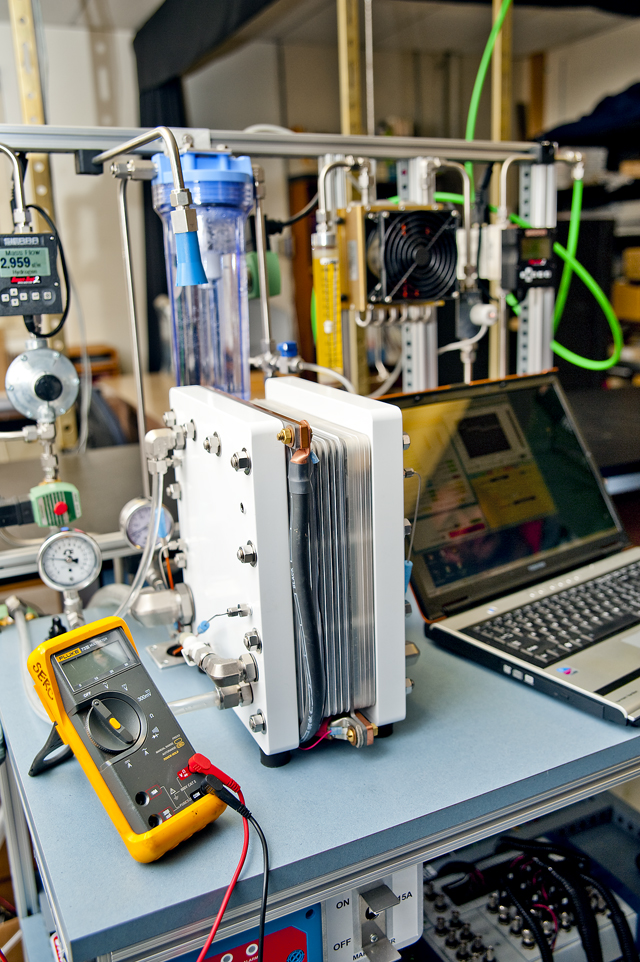
The center has completed an agreement to provide a test station and accompanying fuel cell to the Masdar Institute of Science and Technology in Abu Dhabi, capital of the United Arab Emirates (UAE) on the Persian Gulf.
Masdar's decision to engage the Schatz Center is aimed at jump starting Abu Dhabi's fuel cell research. It is a key component of Masdar's charter as an international graduate-level research and education institution directed at spurring renewable energy knowledge, development and practical applications.
The technology transfer pact emerged when Masdar Professor of Mechanical Engineering Tariq Shamim got in touch last October with Schatz Director Peter Lehman to purchase a fuel cell and research-grade fuel cell test station. Shamim came across the technology while teaching at the University of Michigan in the early 2000s. It was there he saw a Schatz fuel cell test station, a custom system built for the Walter E. Lay Automotive Lab.
"Tariq wanted to replicate what he had seen working in Michigan," Lehman said. "We worked together to find the kind of system he wanted and provided him with a quote, which he accepted, and put in the order. That's when the fun started."
"Fun" meant dealing with the complicated policies and export licensing systems that nations use to negotiate and administer transfers of advanced technology. Lehman and Shamim had to secure clearances from their respective governments and navigate the regulatory regimes that govern purchase orders and international shipments.
Lehman negotiated a $225,000 Letter of Credit from Masdar and obtained an export clearance from the Bureau of Industry and Security, a unit of the U.S. Commerce Department. "It was a bureaucratic adventure," said Lehman, "but even across cultures and 12 time zones, it's been really pleasant dealing with the people at Masdar."
The Schatz Center is scheduled to ship the equipment in August when two of its engineers, Greg Chapman and Marc Marshall, will travel to Abu Dhabi to install the station and train Masdar technicians and faculty in its operation.
Schatz has been involved in research and development of hydrogen and fuel cells since its inception in 1989, building fuel cell test stations for its own laboratory and for other universities, and testing fuel cell materials individually and in combinations. Over the years, the center has worked with a variety of partners in collaborations that have led to two patents and multiple technology licensing agreements, like the one with Abu Dhabi.
Created in 2009 in collaboration with the Massachusetts Institute of Technology, Masdar is laying the groundwork to diversify the UAE's oil-rich, but oil-dependent economy. It is aimed at incubating innovation and entrepreneurship to meet UAE and world energy needs, in partnership with world industry.
Geographically, Abu Dhabi is a clean technology crossroads bridging Asia, Africa and the Middle East, now connected by the new fuel cell agreement with the Schatz Center's ongoing global initiatives.
Currently, Masdar has 170 students from 32 countries embarked on two-year, master of science programs that span electrical power and chemical engineering, water and environmental engineering and other degrees, similar to the undergraduate and graduate programs at Humboldt State's College of Natural Resources and Sciences.